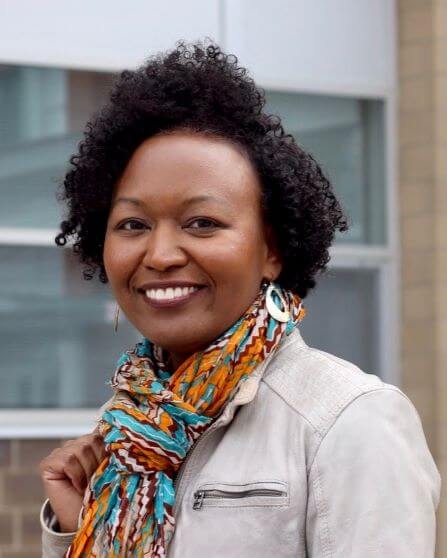- Home
- About Us
- The Team / Contact Us
- Books and Resources
- Privacy Policy
- Nonprofit Employer of Choice Award

 Over the last few weeks, I have been in conversations with past clients about the status of their anti-racism and/or gender equity work. Some insightful themes surfaced from these meetings. No one is completely happy with the progress they have made, in fact the majority of leaders I spoke with noted regret and a feeling of guilt for not prioritizing or taking action since we last connected. Several leaders felt that they needed new tools or updated templates to help them to get started. Some spoke about existing financial resource challenges, staff turnover and the need for more training on “the how” of equity work as reasons for delays or lack of process. Not one person mentioned the word accountability, but this is exactly where the conversation needed to go.
Over the last few weeks, I have been in conversations with past clients about the status of their anti-racism and/or gender equity work. Some insightful themes surfaced from these meetings. No one is completely happy with the progress they have made, in fact the majority of leaders I spoke with noted regret and a feeling of guilt for not prioritizing or taking action since we last connected. Several leaders felt that they needed new tools or updated templates to help them to get started. Some spoke about existing financial resource challenges, staff turnover and the need for more training on “the how” of equity work as reasons for delays or lack of process. Not one person mentioned the word accountability, but this is exactly where the conversation needed to go.
When I speak about accountability, I’m referring to the willingness of individuals and organizations to answer for their actions, decisions and policies related to anti-racism, anti-oppression efforts. It involves taking responsibility for the outcomes, impact and results of initiatives aimed at promoting equity and justice.
No short cuts
The majority of us want to jump to the “how to” of any new project or initiative. We are hoping to find a great explainer, instructions and/or a proven template that can be easily applied. The truth is, anti-racism work involves constant examining amid changing thoughts, feelings and behaviours – not an easy ask for creatures of habit, who are often multi-tasking and working in environments with a lot of distractions and noise. But this is the work. While countless anti-racism, equity and inclusion tools exist, (e.g. guidebooks, articles, podcasts and templates) progress is ultimately hinged on our ability to take accountability and apply new routines. It’s the individual and collective decisions, consistent efforts and commitment to altering our behaviours that creates the conditions for actions and engagement.
“What” before how
Once you have identified your why, then you can pinpoint unique accountability practices that can be weaved into your day-to-day life to support the building of an ongoing regimen. With any new habit, you want to make it easy to start, remove existing barriers and embed reminders that are linked to your “why.”
• The key query becomes: what type of accountability mechanisms will work for you and your team?
• What measures will keep you accountable?
• What self-checks will keep the work front and centre and keep you moving forward?
• What strategies might serve as anchors for collective accountability as a team?
• And crucially—how do you establish ownership and responsibility, both personally and professionally, as an anti-racism leader or champion?
These are great questions to reflect on and to put into action. Keep in mind that it doesn’t have to be complicated, in some of my meetings with clients and peers it only takes the span of the conversation to come up with approaches that they can try as they re-engage or advance their efforts.
Now, I’m inviting you to think about designing an accountability practice:
So, before rushing into the “how to” of anti-racism and anti-oppression, spend time exploring what works for you in terms of accountability and responsibility. Building in practices that keep you focused on your values, goals and actions, enhances sustainability and ultimately furthers your progress and outcomes.
Chanel Grenaway has over 20 years of experience in the nonprofit sector focused on integrating equity and intersectionality practice into workplace cultures. She has worked with Foundations, multi-service nonprofit agencies and academic institutions. She currently supports leaders to improve their equity and inclusion outcomes through equity assessments, training and knowledge building, community engagement, and action planning. www.chanelgrenaway.com